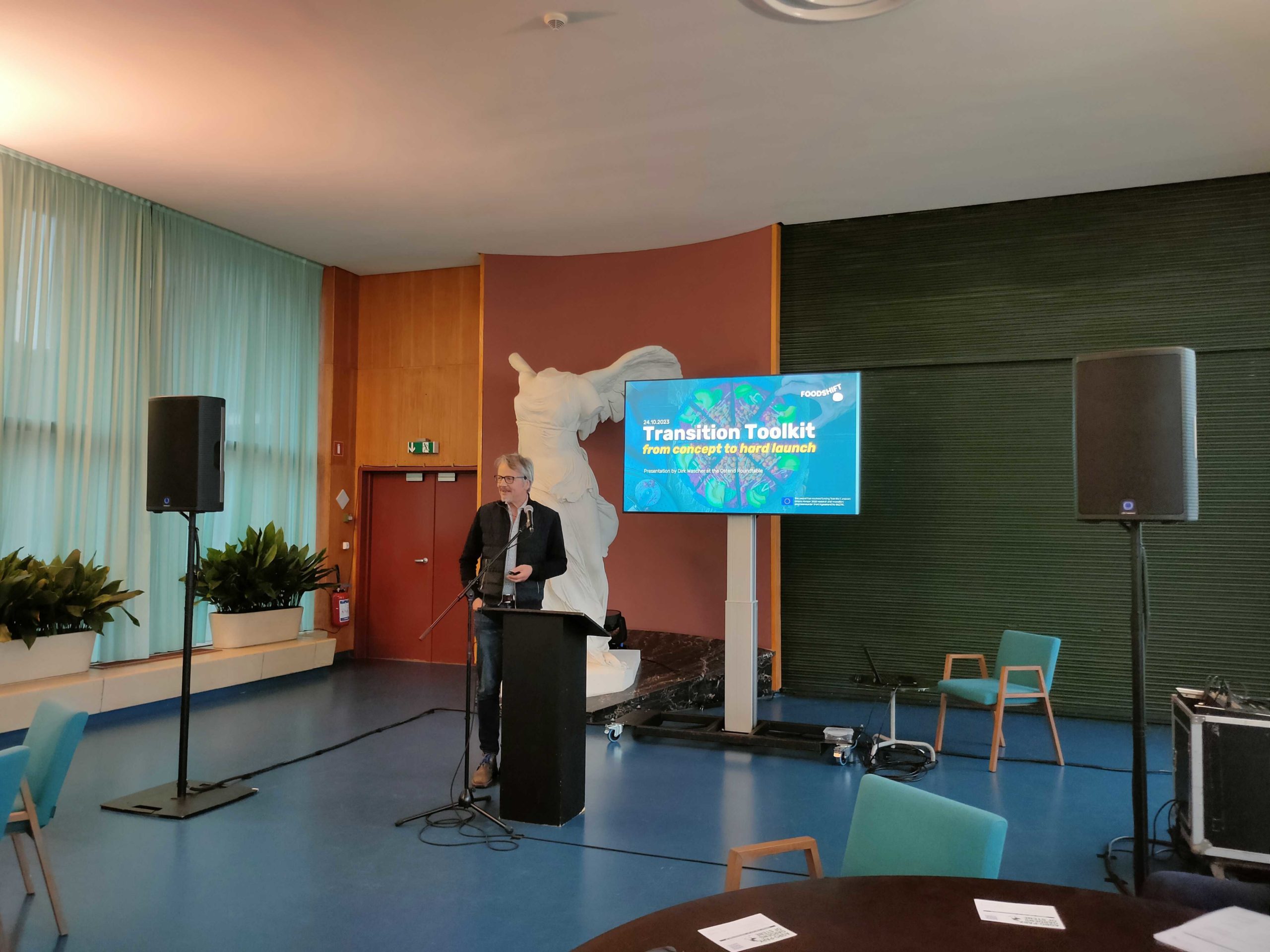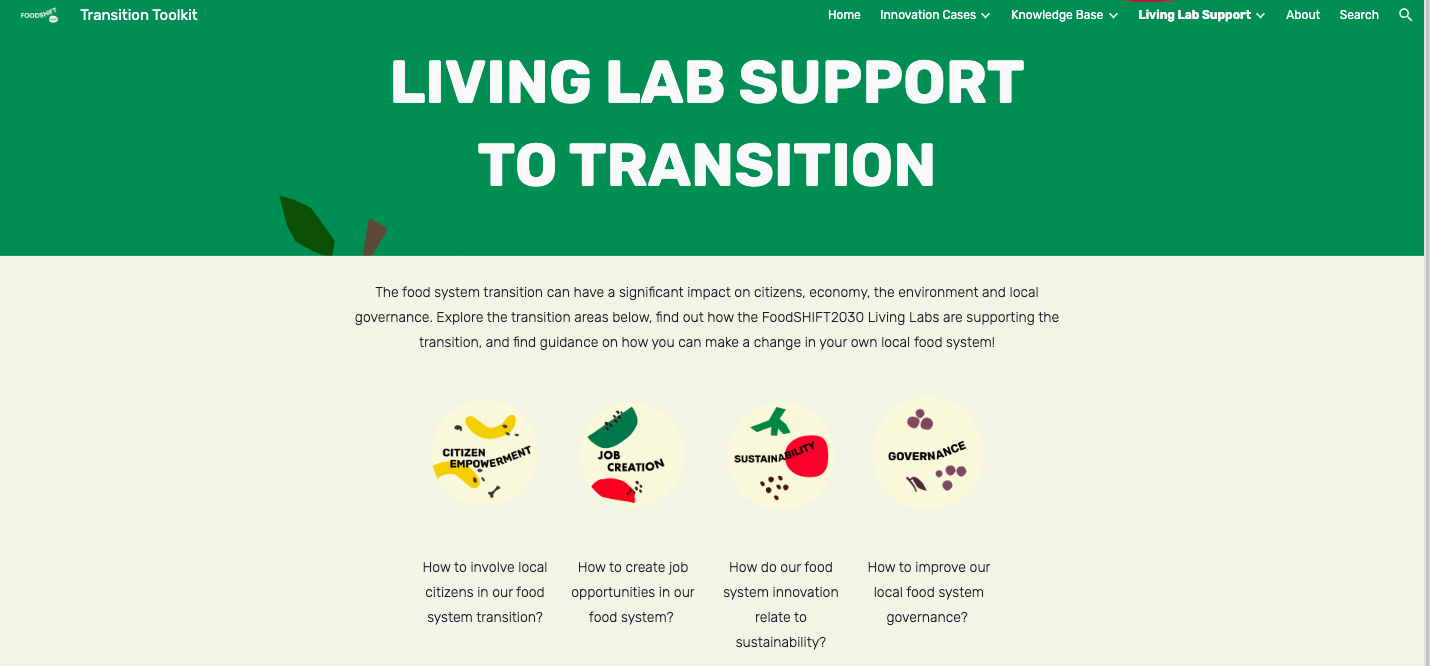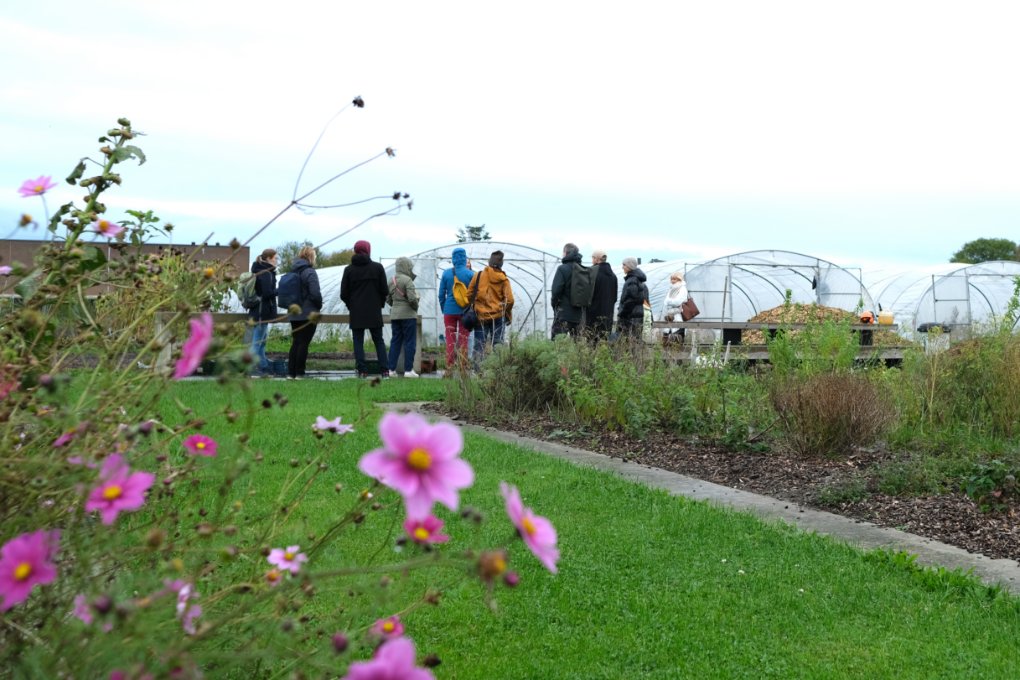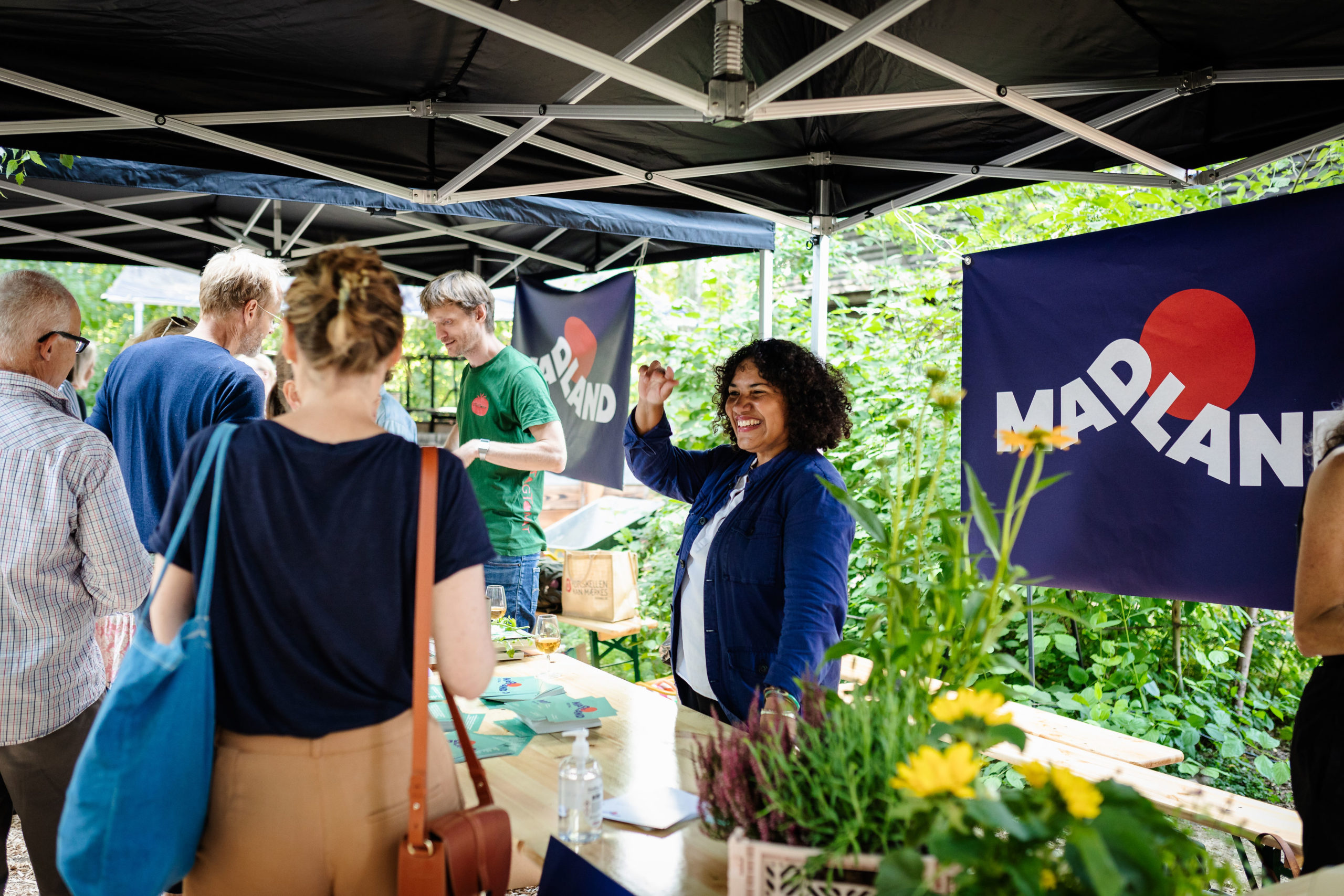Wroclaw’s story: Accessible Food Gardens Lab
14 December 2023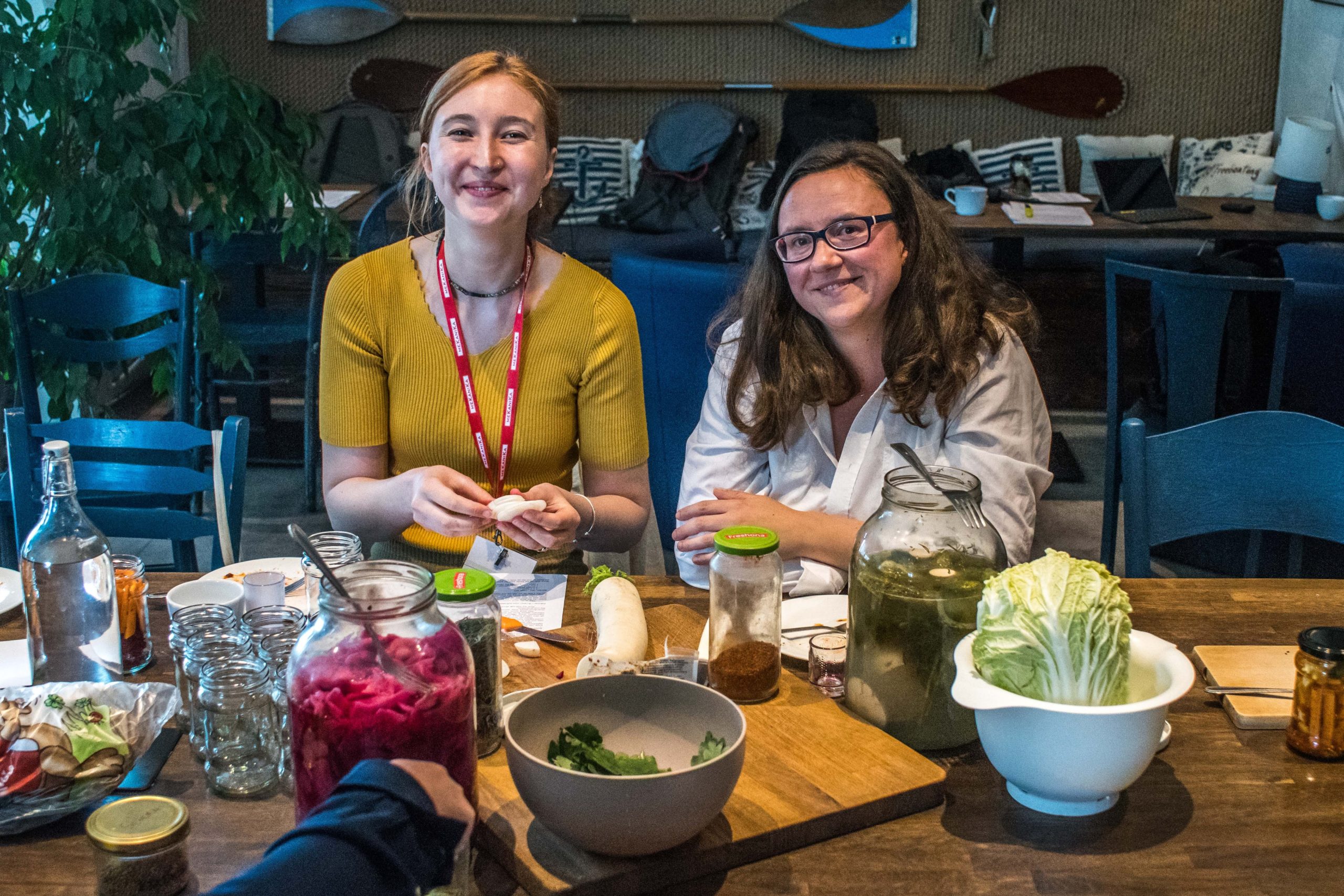
Four years ago nine city-regions took on the challenge to establish FoodSHIFT Accelerator Labs. In this final blogpost, the Wroclaw Lab reflects on the journey and development made during the whole project, through an interview to the Wroclaw Lab coordinators. Explore the Transition Toolkit to to learn more about the other Lab’s experiences, Wroclaw’s city’s reports on innovation and governance and more.
Key takeaways
- Wroclaw’s focus on food system transition was on capacity building and education of different social and aging groups through the creation of accessible food gardens.
- They chose this focus based on two objectives: 1) to create something that people really needed and wanted and 2) to create something tangible that could highlight the importance of supporting the topic food on a political level, especially in a city where there was no agenda for the topic at all.
- Therefore, leveraging personal relationships and working with people who are already aware and engaged with the topic of food are crucial in pushing this topic forward.
- The city achieved much more than they expected. Among other things, they signed the Milan Urban Food Policy Pact, built 20 more food gardens than initially planned, kicked off a variety of food projects and activities tangent to FoodSHIFT and created awareness and engagement among citizens and policy makers on the topic of food.
- Going forward, the different groups and people now activated to work on the topic of food need to find possibilities for collaboration and roles and responsibilities of different actors in the food system need to be clarified. For example, what is the role of the municipality, what is the role of the citizens, what is the role of researchers in this transition?
- For a city wanting to embark on a similar journey, the recommendation is to not shy away but to just do it – one step at a time with likeminded people. And celebrate successes, no matter how small, along the way.
Interview with the Wroclaw Lab coordinators
What was your city’s specific focus in your food system transition and how did you initially start working with this focus area in your city?
Ma?gorzata ?wi?der
So, in general, when we were starting FoodSHIFT, there was no food topic according to the administration law in Poland. So, this is then a problem for the government to do any task related strictly to food. And we knew that it will be a hard issue.
Monika Onyszkiewicz
But I think what needs to be underlined initially is the personal linkages between us playing the crucial roles. Me, Malgorzata and Marta, we knew each other on a private level through this project we cooperated on before on the topic of food. And it’s the same between the university team and Malgorzata from the municipality. If there wasn’t a personal linkage, so one Malgorzata didn’t know the other one, it would have been very differently.
Malgorzata Bartyna Zieli?ska
I can imagine that if Malgorzata had written a formal invitation for the project to one of my bosses or the mayor, the answer, probably, would have been that the city doesn’t do this. But because we knew each other and we met, we were thinking okay, so what could the city get out of this project? Something that we could show that food is important. That’s why we came up with the idea of vegetable gardens at schools and kindergartens. And that was something we could show our policymakers and say, okay, the city will have this. They needed something tangible.
Ma?gorzata ?wi?der
We were generally thinking about education and what peoples’ needs are, because we wanted to create something important for the people. So, we weren’t only focussed on the actions that we had to fulfil according to the grant agreement of the FoodSHIFT project, but we were more open to state that, okay, we verify the needs of the people, and we are prepared that maybe we have to do some changes in what we had planned.
And then we started working with the people that were already engaged. We started with a lot of online meetings to do some drum board activities to get some feedback from them. And then the NGO was preparing a lot of educational activities. We had also some initial meetings with schools, to talk about who’s interested in doing community gardens and so on. We tried to reach these people who could be interested or who had some light in them that they would like to do something, but they just didn’t know how to do it, who to reach out to, they don’t have knowledge, or experience, and so on.
Monika Onyszkiewicz
We wanted to involve formal schools. But we realised that it is really, really energy consuming to be working with the public schools. Because in Poland, the public schools are in really bad situations. The teachers from public schools are overwhelmed, they don’t have any other motivation to take part in such a workshop. But the energy we were giving to the individuals already involved was fine. Through that kind of citizens, it’s good to make change. So, reaching those citizens willing to spread the info. Like the local agents of change. This is very, very important I think.
What were some obstacles or challenges you faced in your food system transition and how did you overcome them (or are planning on overcoming them)?
Monika Onyszkiewicz
I would say from my perspective, from the work we are doing at the foundation or at grassroots initiatives, is that once we have a project supporting our actions, supporting the movement, it goes forward. If not, it’s quite difficult. It’s quite difficult to enter on this political level to be present at the municipality, at the government level because that allows or shapes the most. I think that the will among people living in the region, that are active in the region, in the food system is already there. But we need to make this shift on political level and what Ma?gorzata said, the problem is how to find formal ways for public officers, to work on this officially. Not to be accused of taking care of a topic that is not crucial in their work and so on.
Malgorzata Bartyna Zieli?ska
I would like to add one thing. Because it’s not officially part of municipal duties, we don’t have officially money for this. So we have to be creative in ways of getting money. Like for example right now, we’ll be working on the food policy. But to find money to have meetings with different stakeholders to learn about the conditions and the needs and that all the stakeholders can even meet, we use money from other projects. Like from the federal local building project, which is a planned initiative. So, we use this money because they said, “Okay, you have to focus on one of the pillars of the European Green strategy.” And so, we chose food. Because we knew we need money for the food policy.
Monika Onyszkiewicz
Another aspect I would say is that thanks to FoodSHIFT, we have now mapped the actors that are important on shaping the food system or shaping the food policy in Poland. But even though we’ve launched several meetings, trying to coordinate or to talk to those actors, there is no real perspective to collaborate like a team, like a committee. I would say that now, it’s a map of scattered actors. We can function as a scattered map of actors but there are no stable linkages between us or the way we cooperate, we exchange where we are, what we are doing.
Malgorzata Bartyna Zieli?ska
It’s interesting what you say, because when we had this workshop within the European Green Deal project, so we had set this condition, and we’re discussing different topics like food waste and other things. And then it was divided into actions, and then what each of the stakeholders could do to change the status. And the answers were interesting, because despite the fact that there were academia and small businesses and other representatives present, they were mostly expecting that the city will take care of everything. But there are some other things that they could do as well. But it was like they were expecting that the city will take care of everything.
Monika Onyszkiewicz
I think it just shows that it’s really important to educate from the scratch, who can play which kind of role because a lot of duty is up to the municipality to shape the environment.
Monika Onyszkiewicz
So for instance, we are working in our FAL on the open-air markets. So, it’s up to the municipality to create a space and to provide a space for local producers to come and sell the products. It’s up to the municipality. But it’s up to citizens to go there and do the shopping. Whose role is what?
Malgorzata Bartyna Zieli?ska
Yes, but it should be said that, okay, all of us can do something. It’s not like the city will take care of all the projects. So, I will say that we have aware citizens, but not citizens who are willing to participate in the change. There is still work to do.
Monika Onyszkiewicz
But I see here the need to stress better cooperation between citizens or let’s say, cooperation that is managed or communicated through us, the NGO, and the municipality, which plays a huge role in the city, and researchers to give raw data that it is very important to do this or do that.
If you look back on the last four years, what would you say were your biggest achievements or impacts that you achieved during the project?
Ma?gorzata ?wi?der
As I said before, when we were starting FoodSHIFT, there was no food topic at all. Still, it’s not according to the administration law in Poland. And we didn’t even expect, for example, that we will join the Milan Urban Food Policy Pact that happened one year ago or maybe two years ago. We didn’t expect it. I remember that when we had the talk with the municipality, I was, you know, suggesting that maybe we could do some analysis, because there is a work package in the project dedicated to analysing existing food systems for cities. So maybe it could be the starting point for discussions to join the Milan Urban Food Policy Pact after FoodSHIFT. So, I think this is quite a success to have achieved this already during the project.
On top of that, we focussed on the capacity building, to reach a lot of people, a lot of stakeholders, different stakeholders, to educate people. And I think we achieved this goal because we had a lot of different activities. Like each year, we have this picnic for citizens that they can join to see what we are doing. We have different education activities, there were different meetings with different groups of people.
And other actions appeared during FoodSHIFT that are close to FoodSHIFT but not directly connected to FoodSHIFT. For example, our students were doing some extra community gardens or small gardens with another fund. So, the rising awareness about self-sufficiency, creating a community garden and so on. So, we have a lot of different activities that are maybe not strictly within the FoodSHIFT project but created based on the FoodSHIFT project.
Even at our university you could say that the food topic was not super popular. And last year, we created the CSA. So, now 100 employees are taking boxes for the season. And it wouldn’t have been possible, I think, in 2020. But it was possible last year, and people were really happy to continue with it this year.
Malgorzata Bartyna Zieli?ska
We have achieved more than what we wanted to achieve. For example, we were thinking that we’ll have four or five vegetable gardens at schools. Now we have over 20 because we have some municipal money we use, and there’s going to be four more before the end of the project. So, 24, 25 vegetable gardens, and in the proposal, there were four.
Also, if we were to start the project right now, it would be much easier because there are more people that are working on the food topic, in terms of health or education, or something else. So, that shows the way we’ve made progress. That’s right now if Ma?gorzata would have started this topic, she would find people interested and eager to cooperate. That’s also one of the successes that right now, this topic is more approachable. It’s more obvious that okay, we can as a city deal with this topic, and we’re working on the food policy. It’s like right now, nobody is questioning that the city is working on this topic.
Another thing is that when we started the gardens, we had to write to schools and ask whether some of them would be interested or not. We got some response, but it wasn’t that much. But right now, like the schools they’ve learned, and they know that there is such a programme, and that they can apply. So generally, we don’t have to do anything because they just keep writing to us now.
Monika Onyszkiewicz
I would say another success is networking. During these four years, we have had meetings with the kind of actors that would never have met, if it wasn’t for the FoodSHIFT project.
What advice do you have for other cities who want to embark on a similar journey?
Ma?gorzata ?wi?der
I would say just do your job. Like even if something appears, some troubles. Just do your job, find people or people will find you, always. I think if you’re just doing your job well and if you are a person who is good at networking and connecting with people, people will find you, you will find people. You will always have some luck. Even if there are some troubles. So, just keep going.
Monika Onyszkiewicz
This is true, so no matter what you’re doing, keep on going. But do assessments. Do evaluations. Because this is my biggest lesson on what we should do better in the next step, the next month, next year. So, evaluate your work with your workmates and celebrate. So, celebrate good moments. See the positive. Because it’s our brain, it’s working in a way that we see the whole like, we see the problems and we are not seeing the steps forwards. So, celebrate even the small steps. It’s not perfect. It’s not what you wanted to do. But still, you are progressing. So, evaluating and celebrating. This is the most important. I think this is the heart of the idea.
Check out previous blogposts by the Wroclaw Lab:
